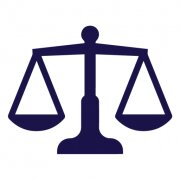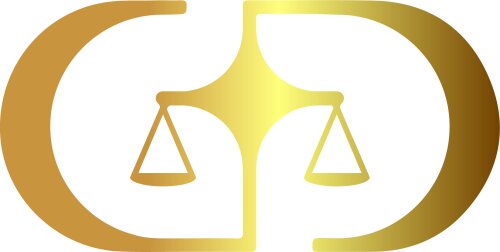Best Collaborative Law Lawyers in Bahía Blanca
Share your needs with us, get contacted by law firms.
Free. Takes 2 min.
Free Guide to Hiring a Family Lawyer
List of the best lawyers in Bahía Blanca, Argentina
About Collaborative Law in Bahía Blanca, Argentina
Collaborative Law is an innovative approach to conflict resolution that focuses on cooperation rather than confrontation. In Bahía Blanca, Argentina, this process is gaining popularity as a viable alternative to traditional litigation, especially in family matters like divorce, child custody, and estate planning. Collaborative Law encourages parties to work together, assisted by specially trained lawyers, to reach a mutually acceptable agreement without going to court. This method emphasizes open communication, transparency, and respect, making it ideal for preserving relationships and achieving sustainable solutions.
Why You May Need a Lawyer
Collaborative Law can be particularly useful in situations where the individuals involved prefer to resolve disputes privately and amicably. Common scenarios include:
- Family law matters such as divorce, separation, child custody, and visitation agreements.
- Division of property and financial arrangements following separation.
- Negotiation of prenuptial or postnuptial agreements.
- Estate planning and disputes over inheritance or guardianship.
- Resolving long-standing conflicts within businesses, partnerships, or co-ownerships.
- Other civil disputes where preserving a working or family relationship is important.
A lawyer trained in Collaborative Law can help guide you through the process, represent your interests, and facilitate productive negotiations while ensuring all agreements comply with Argentine law.
Local Laws Overview
Collaborative Law in Bahía Blanca operates within the overarching legal framework of Argentine law, but local judicial practices and cultural factors shape its application. Here are key aspects relevant to the area:
- Collaborative Law is not a separate legal system but a voluntary process recognized by many local practitioners and some courts as a valid means of dispute resolution.
- Agreements reached through the collaborative process must comply with the Argentine Civil and Commercial Code and be judicially approved to become legally binding, especially in family law cases.
- Lawyers must receive specialized training in collaborative processes, which involve a commitment not to represent their clients in court if negotiations break down. This ensures all parties are dedicated to settling matters out of court.
- Confidentiality is a cornerstone of the collaborative process - discussions and documents shared during meetings are generally protected and cannot be used as evidence if the case later goes to court.
- In Bahía Blanca, courts often encourage alternative dispute resolution methods to alleviate the burden on the judiciary and promote faster, more amicable resolutions.
Consulting with a local lawyer familiar with collaborative practices is essential to ensure that any agreement meets legal standards and can be enforced in Bahía Blanca.
Frequently Asked Questions
What is Collaborative Law and how does it work in Bahía Blanca?
Collaborative Law is a process where both parties, with the help of their own lawyers, commit to resolving disputes respectfully and without going to court. In Bahía Blanca, this process is typically used in family law and civil disputes.
When should I consider Collaborative Law over litigation?
If you value privacy, want to preserve ongoing relationships, and prefer a less adversarial environment, Collaborative Law is a good choice. It is particularly effective when both parties are willing to negotiate in good faith.
Are collaborative agreements legally binding in Argentina?
Yes, once an agreement is reached, it must be submitted to a judge in Bahía Blanca for approval to ensure it complies with Argentine law. Once approved, it becomes legally binding.
Can Collaborative Law be used for issues other than family law?
While most common in family law, the collaborative process can also be used in civil matters, such as business disputes, inheritance issues, and co-ownership disagreements.
What happens if the collaborative process fails?
If parties cannot reach an agreement, the collaborative process ends. The lawyers who participated are not allowed to represent their clients in subsequent litigation, which encourages commitment to the process.
How is confidentiality maintained during the collaborative process?
All discussions and documents shared during collaborative sessions in Bahía Blanca are confidential. Information shared cannot typically be used later in court if negotiations break down.
How long does the collaborative process usually take?
Duration varies depending on the complexity of the dispute and willingness of the parties to cooperate, but it often resolves faster than traditional court processes, sometimes in a few sessions.
Will I need to appear in court at all?
If an agreement is reached, you may need to appear briefly for the judge’s approval of the agreement, but not for adversarial hearings or trials.
How do I find a collaborative lawyer in Bahía Blanca?
Look for lawyers with specific training and experience in Collaborative Law, preferably those registered with local bar associations or recommended by alternative dispute resolution organizations.
Is Collaborative Law more affordable than litigation?
Generally, yes. The collaborative process can save time and reduce costs compared to prolonged court battles, though exact expenses vary depending on the nature of the dispute and the professionals involved.
Additional Resources
Several organizations and institutions in Bahía Blanca and Argentina can help with Collaborative Law matters:
- Bahía Blanca Bar Association (Colegio de Abogados de Bahía Blanca) - Offers referrals to collaborative lawyers and resources.
- Argentine Institute for Collaborative Law (Instituto Argentino de Derecho Colaborativo) - Provides training and accreditation for lawyers and maintains a registry of collaborative professionals.
- Ombudsman's Office (Defensoría del Pueblo) - Can advise on alternative dispute resolution and rights regarding family and civil matters.
- Local family courts - May provide information about recognized collaborative practitioners and available services.
It may also be helpful to consult community legal clinics or university law faculties offering guidance or referrals.
Next Steps
If you are considering Collaborative Law in Bahía Blanca, here are practical steps to follow:
- Assess whether your dispute is suitable for collaborative resolution and whether both parties are willing to participate.
- Research and contact lawyers in Bahía Blanca who specialize in Collaborative Law. Ask about their training, experience, and approach to collaborative processes.
- Schedule an initial consultation to discuss your situation, learn how the collaborative process applies, and understand costs and timelines.
- Agree with the other party to enter the collaborative process and sign a participation agreement, committing to open communication and avoiding court action during negotiations.
- Participate actively and honestly in collaborative meetings, with support from your lawyer and, if needed, other professionals such as mediators or financial experts.
- Once an agreement is reached, have it reviewed and submitted to the appropriate court for approval to make it legally binding.
Remember, choosing the right lawyer and being fully informed can make the collaborative process smoother and significantly increase your chances of reaching a satisfactory resolution without the stress of going to court.
Lawzana helps you find the best lawyers and law firms in Bahía Blanca through a curated and pre-screened list of qualified legal professionals. Our platform offers rankings and detailed profiles of attorneys and law firms, allowing you to compare based on practice areas, including Collaborative Law, experience, and client feedback.
Each profile includes a description of the firm's areas of practice, client reviews, team members and partners, year of establishment, spoken languages, office locations, contact information, social media presence, and any published articles or resources. Most firms on our platform speak English and are experienced in both local and international legal matters.
Get a quote from top-rated law firms in Bahía Blanca, Argentina — quickly, securely, and without unnecessary hassle.
Disclaimer:
The information provided on this page is for general informational purposes only and does not constitute legal advice. While we strive to ensure the accuracy and relevance of the content, legal information may change over time, and interpretations of the law can vary. You should always consult with a qualified legal professional for advice specific to your situation.
We disclaim all liability for actions taken or not taken based on the content of this page. If you believe any information is incorrect or outdated, please contact us, and we will review and update it where appropriate.









